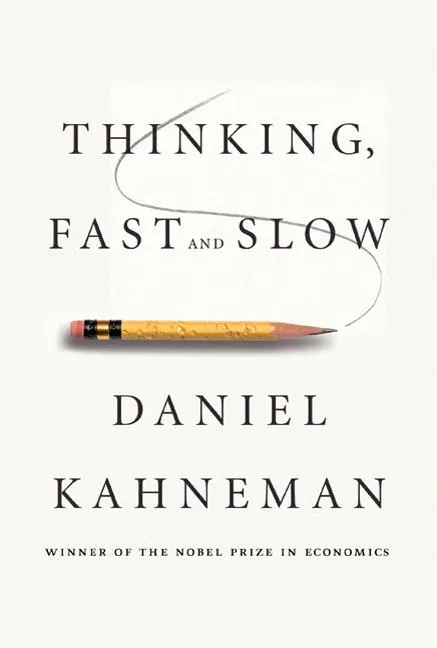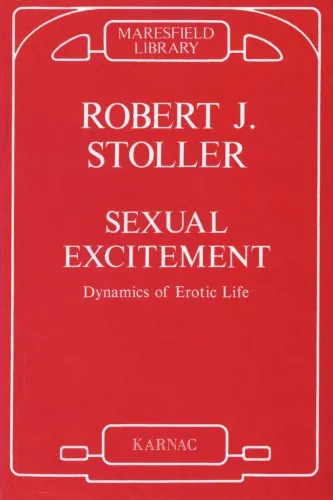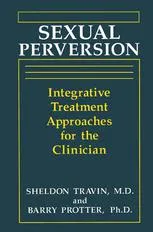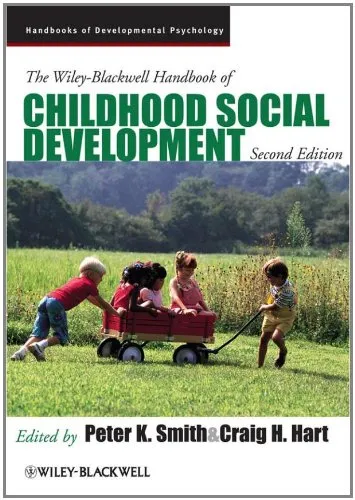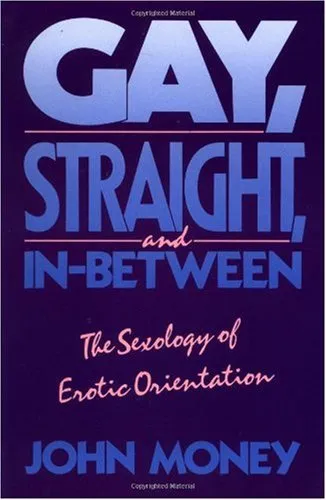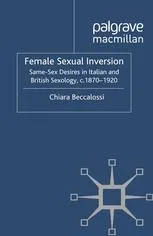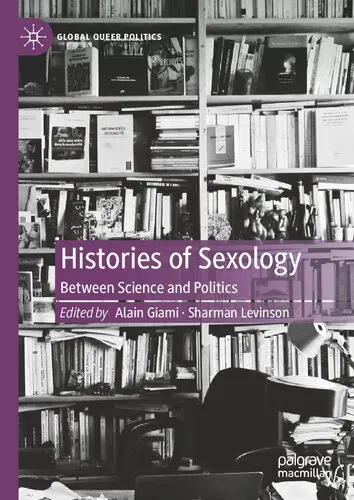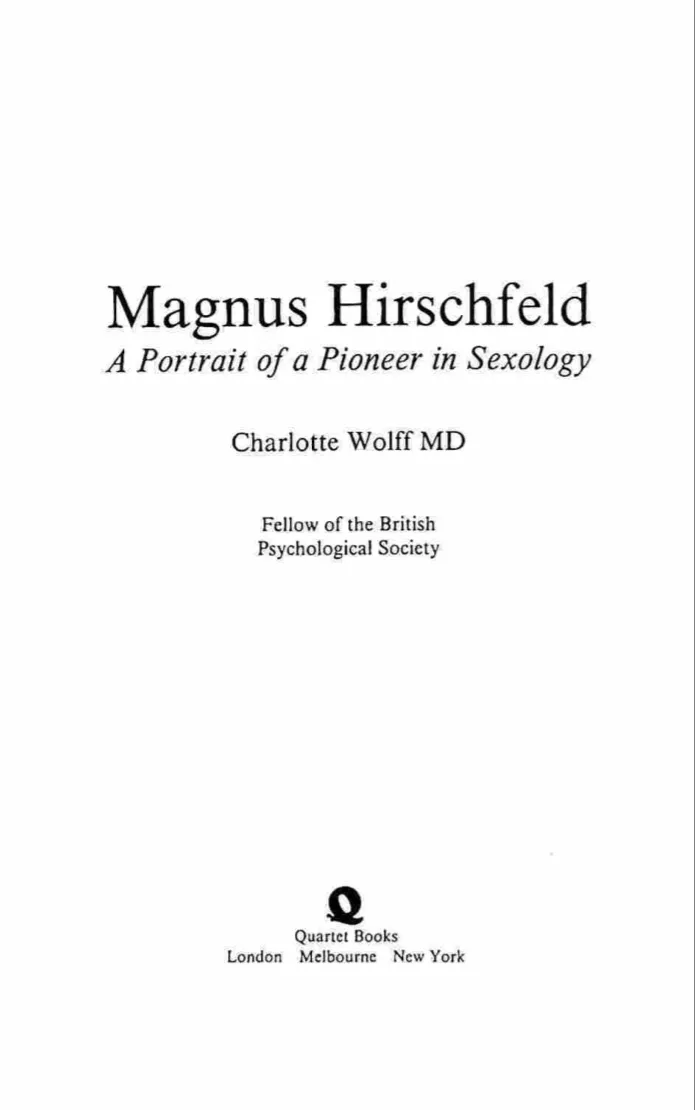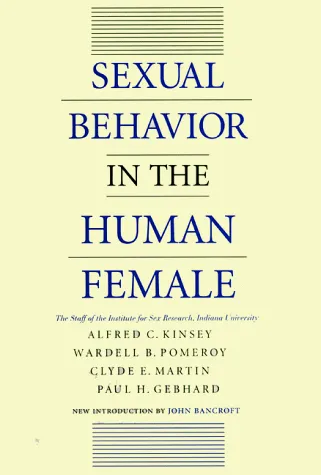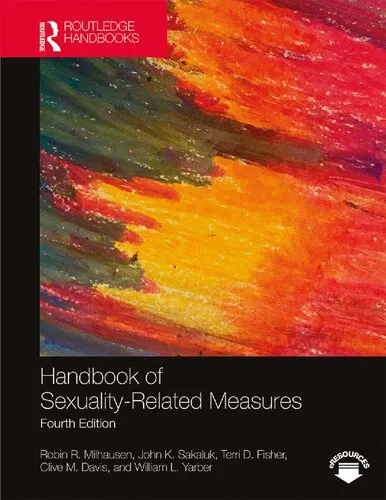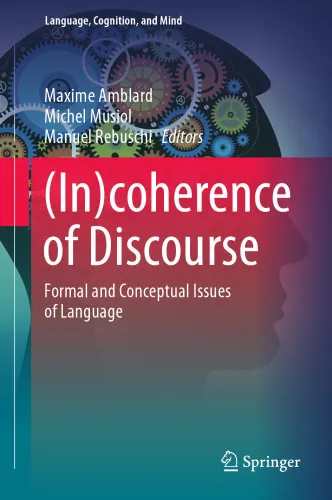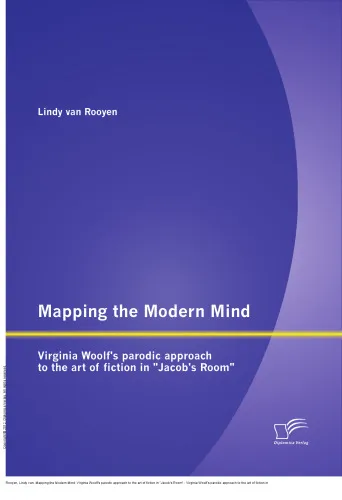Sciences of Modernism: Ethnography, Sexology, and Psychology
4.2
بر اساس نظر کاربران

شما میتونید سوالاتتون در باره کتاب رو از هوش مصنوعیش بعد از ورود بپرسید
هر دانلود یا پرسش از هوش مصنوعی 2 امتیاز لازم دارد، برای بدست آوردن امتیاز رایگان، به صفحه ی راهنمای امتیازات سر بزنید و یک سری کار ارزشمند انجام بدینکتاب های مرتبط:
معرفی کتاب Sciences of Modernism: Ethnography, Sexology, and Psychology
کتاب Sciences of Modernism اثر پل پپیس یک مطالعه مهم و جامع درباره تأثیر علوم انسانی نوظهور همچون Ethnography، Sexology و Psychology بر مدرنیسم ادبی است. این کتاب با نگاهی بینارشتهای به بررسی چگونگی تأثیر این علوم بر آثار نویسندگان برجسته مدرنیستی پرداخته و تعامل بین علم و ادبیات را مورد تحلیل قرار میدهد.
خلاصهای از کتاب
کتاب Sciences of Modernism توضیحی است بر این که چگونه علوم نوظهور اوایل قرن بیستم، چارچوب جدیدی برای نگاه انسانشناسی، جنسیتی و روانشناختی به جهان ارائه دادند. این کتاب تحت تأثیر کشفیات جدید در علومی همچون Ethnography (مطالعه فرهنگها و جوامع مختلف)، Sexology (علم جنسیت و روابط انسانی) و Psychology (مطالعه ذهن انسان)، ایدههایی را مطرح میکند که چگونه این علوم به مثابه یک ابزار مفهومی، به نویسندگان مدرنیست در شکلدهی روایتها، شخصیتها و فضای داستانیشان کمک کردند. نویسندگان مورد بحث کتاب نظیر ویلیام بارت، اچ دی و جیمز جویس، تحت تأثیر این رشتهها، نوعی بازخوانی فرهنگی و علمی ارائه دادهاند.
نکات کلیدی کتاب
- نحوه تأثیرپذیری نویسندگان مدرنیستی از کشفیات علوم انسانی مدرن.
- روش استفاده نویسندگان مدرنیست از مفاهیم Ethnography برای نقد فرهنگ غربی.
- تحلیل تأثیر Sexology و مفاهیم جنسیتی بر خلق شخصیتهای داستانی.
- بررسی نقش Psychology در شکلگیری ساختار روانشناختی آثار ادبی مدرنیسم.
جملات معروف از کتاب
"مدرنیسم نه تنها به عنوان یک جنبش ادبی، بلکه به مثابه بازتابی از انقلاب علمی اواخر قرن نوزدهم و اوایل قرن بیستم جهانبینی انسان را دگرگون ساخته است."
"استفاده مدرنیستها از جنسیت و فرهنگ در حقیقت اعتراض به سلطهگریهای فرهنگ غربی و تأکید بر تنوع فرهنگی است."
چرا این کتاب اهمیت دارد؟
کتاب Sciences of Modernism نه تنها به ایجاد پل میان ادبیات و علوم انسانی کمک میکند، بلکه فرصتی برای درک عمیقتر تأثیر علوم بر تحول فرهنگی در قرن بیستم فراهم میآورد. با تحلیل جامع و روشمند، پپیس نشان میدهد که چگونه آثار مدرنیستی به زمینهای برای تعامل مستمر میان علم و فرهنگ تبدیل شدند، که این خود راهی است برای بازاندیشی مسائل کلیدی دوران مدرن. این کتاب به دانشجویان، پژوهشگران و علاقهمندان به مدرنیسم و علوم انسانی فرصتی برای گسترش دانش و فهم بهتر مفاهیم علمی و ادبی ارائه میدهد.
Introduction to "Sciences of Modernism: Ethnography, Sexology, and Psychology"
"Sciences of Modernism: Ethnography, Sexology, and Psychology" by Paul Peppis is a groundbreaking exploration of the intersecting fields of modernist literature and the emerging sciences of the late 19th and early 20th centuries. In this book, Peppis unpacks how disciplines like ethnography, sexology, and psychology not only informed the works of prominent modernist writers but also shaped the trajectory of modernist aesthetics and sensibilities. Broadly categorized as a critical analysis, this text bridges the domains of literary studies and the history of science, offering readers a multidimensional perspective on the intellectual forces that influenced the modernist movement.
With meticulous research and sharp analysis, Peppis delves into the scientific discourses of the time and their resonance in the works of key figures in the modernist movement. He highlights the reciprocal relationship between these discourses and literature, showcasing how writers grappled with and contributed to the radical shifts in understanding human identity, culture, and sexuality. This book is essential for scholars of modernism, cultural studies, and anyone intrigued by the confluence of art and science during a transformative period in history.
Detailed Summary
The book is divided into three core sections, each dedicated to a specific scientific discipline—ethnography, sexology, and psychology—and their interaction with modernist literature.
In the ethnography section, Peppis analyzes how modernist writers incorporated anthropological studies into their narratives. He examines how ethnographic methods and theories questioned Western notions of cultural superiority, influencing the themes of alienation and otherness commonly found in modernist works. Writers such as Ezra Pound and T.S. Eliot drew upon ethnographic materials to critique Western culture and explore the diversity of human experiences.
The sexology section probes into the impact of emerging studies on sexuality and gender. Peppis demonstrates how sexology's challenge to traditional moral codes profoundly shaped modernist portrayals of identity and relationships. Figures like D.H. Lawrence are pivotal in this discussion, as their works reflect a deep engagement with the scientific exploration of sexual behaviors and instincts.
Finally, in the psychology section, Peppis discusses the influence of Freudian and Jungian theories on modernist narrative techniques, particularly the focus on the subconscious mind and fragmented identities. Virginia Woolf and James Joyce emerge as significant examples here, with their innovative approaches to exploring inner consciousness and re-evaluating the boundaries of selfhood and reality.
Through its comprehensive exploration of these three disciplines, "Sciences of Modernism" reveals the interdependence of scientific inquiry and literary modernism, underscoring the mutual influence of cultural and intellectual movements.
Key Takeaways
- Modernist literature is deeply intertwined with the scientific discourses of its time, particularly ethnography, sexology, and psychology.
- The scientific challenges to traditional beliefs about culture, sexuality, and identity directly influenced modernist themes and aesthetics.
- Writers not only adopted scientific theories but also critiqued and reshaped them through the lens of fiction.
- Understanding the dialogue between science and literature provides richer insights into the complexities of modernist texts.
- The radical rethinking of human experience and consciousness during the modernist era remains relevant in contemporary discussions of culture and identity.
Famous Quotes
"Modernist writers did not merely borrow from science; they labored to transform it, aligning its findings with their own artistic and intellectual agendas."
"The modernist engagement with sexology was not just a mirror to a changing society; it was an active component in reshaping the discourse of sexuality itself."
"Ethnography offered modernist writers a lens to reimagine culture—not as a static construct, but as a dynamic interplay of histories, practices, and identities."
Why This Book Matters
"Sciences of Modernism" occupies a unique place in the field of modernist studies, providing a nuanced lens through which to analyze the relationship between literature and science. By focusing on ethnography, sexology, and psychology, the book addresses three pivotal disciplines that reshaped understandings of humanity during the modernist era.
The book is not only an invaluable resource for students and scholars in modernist and literary studies but also offers interdisciplinary insights for those interested in the history of science, cultural theory, and social criticism. It highlights the dynamic reciprocity between scientific innovation and artistic experimentation, illustrating the ways knowledge production in one domain enriched and complicated ideas in another.
In our contemporary age, where the intersections of art, science, and culture are again under intense scrutiny, "Sciences of Modernism" serves as both a foundational text and a source of inspiration, reminding us of the transformative power of intellectual dialogue across disciplines.
دانلود رایگان مستقیم
شما میتونید سوالاتتون در باره کتاب رو از هوش مصنوعیش بعد از ورود بپرسید
دسترسی به کتابها از طریق پلتفرمهای قانونی و کتابخانههای عمومی نه تنها از حقوق نویسندگان و ناشران حمایت میکند، بلکه به پایداری فرهنگ کتابخوانی نیز کمک میرساند. پیش از دانلود، لحظهای به بررسی این گزینهها فکر کنید.
این کتاب رو در پلتفرم های دیگه ببینید
WorldCat به شما کمک میکنه تا کتاب ها رو در کتابخانه های سراسر دنیا پیدا کنید
امتیازها، نظرات تخصصی و صحبت ها درباره کتاب را در Goodreads ببینید
کتابهای کمیاب یا دست دوم را در AbeBooks پیدا کنید و بخرید
1401
بازدید4.2
امتیاز0
نظر98%
رضایتنظرات:
4.2
بر اساس 0 نظر کاربران
Questions & Answers
Ask questions about this book or help others by answering
No questions yet. Be the first to ask!






